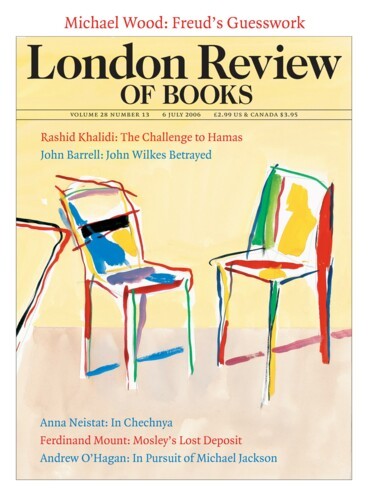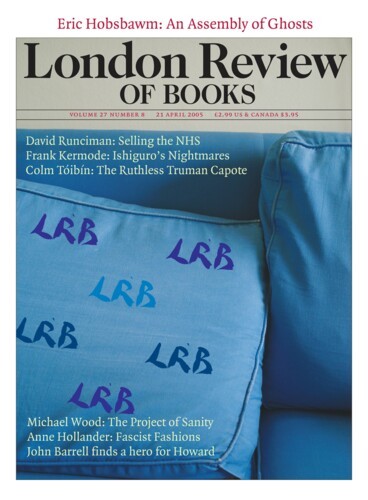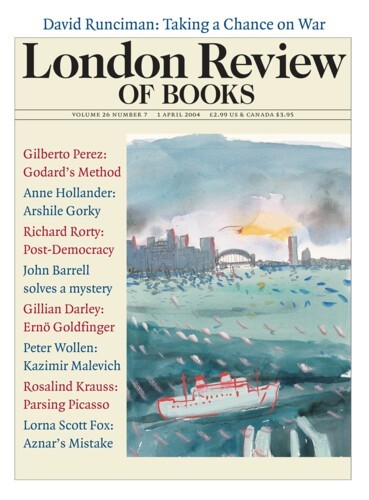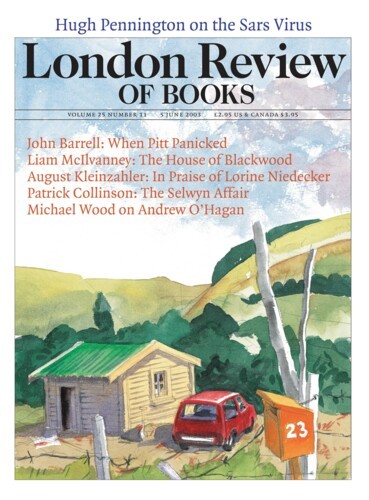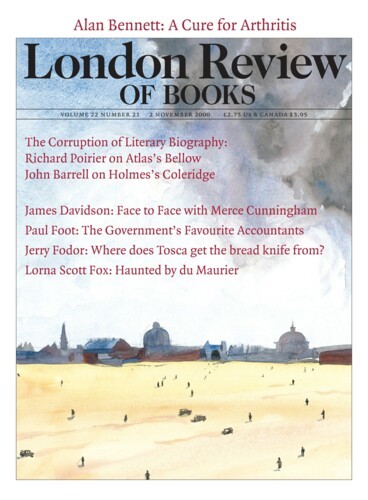Unwarranted: John Wilkes Betrayed
John Barrell, 6 July 2006
The last time I wrote for the LRB, I mentioned a speech made by Tim Collins, the then shadow education secretary, calling for a review of the teaching of history in schools. ‘Nothing is more important to the survival of the British nation,’ he had declared, ‘than an understanding among its young of our shared heritage and the nature of the struggles, foreign and domestic,...
